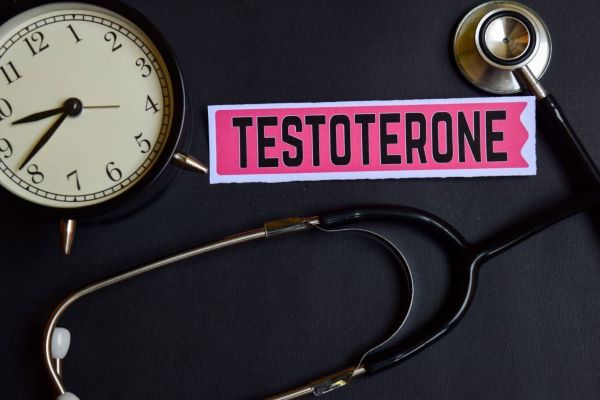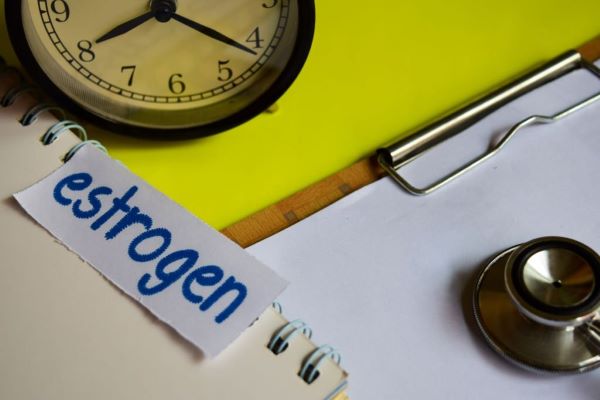Creatine might make you feel a lot of things speeding up inside. But you can’t see what might be going on and get worried about anything that can cause an issue. Many consumers are primarily concerned with hormonal imbalances that can lead to complications.
Creatine-consuming men are more concerned about the male hormones and query about does creatine increase testosterone.
Creatine has no direct effect on testosterone in either men or women. It does create a situation where the muscles have more energy resulting in increased testosterone to contract faster. But this increase in level is negligible to cause any severe issues.
Let’s further discuss how creatine and testosterone might be related, whether this is a problem, and what you can do about it.
Does Creatine Increase Testosterone?
Creatine does not affect body hormones, but the actions from taking creatine can cause some physical changes like abs muscle development or acne. However, some common misconceptions exist, like creatine can enhance libido or extend height.
The concern over creatine and similar supplements comes from the fact that they have an anabolic effect due to their properties. This is further enhanced by heavy workouts, leading to an indirect increase in testosterone levels.
Does Creatine Increase DHT?
A few studies have shown that men taking creatine slightly increase DHT levels. However, most research found no significant change in total testosterone, free testosterone, or DHT with creatine consumption.
DHT or dihydrotestosterone is a byproduct of testosterone that helps with hair growth and skills cells. It also takes part in muscle activity. When you are exercising, testosterone transforms into DHT by the muscles.
This allows them to flex or look bigger. So, creatine indirectly relates to testosterone and DHT to increase muscle cell growth and recovery.

High DHT levels mess with hormonal balance when the growth cycle gets faster. This can lead to unwanted issues like hair loss.
While testosterone is a sex hormone, it also regulates muscle growth, bone density, and fat distribution. So, while you are on creatine, increased testosterone, and subsequent DHT levels might come from increased muscle mass.
The higher testosterone levels were still within the normal range. It also happens during the initial phase of taking creatine and then gets back to normal. In most men, there is hardly any change in testosterone levels.
Creatine and Testosterone Relationship in Science
Creatine does not significantly impact total testosterone, free testosterone, or DHT. A few research found a slight impact of creatine on testosterone, whereas most studies found no significant impact.
A study published in the Journal of Strength and Conditioning Research in 2009 observed that resistance-trained men who took creatine experienced a slight increase in testosterone levels during the initial stages of supplementation. However, creatine did not maintain this effect throughout the study.
Another study published in 2000 in the International Journal of Sports Nutrition and Exercise Metabolism found that creatine supplementation had no significant effect on resting or exercise-induced changes in testosterone or cortisol levels in male athletes.
Is Creatine A Steroid?
People also worry about steroids or other stimulating drugs that increase hormones for faster growth.
But creatine doesn’t directly make us bigger; it simply offers a lot of energy for rapid cell growth and heavy exercises. Creatine changes growth hormone levels, but not any resting ones like testosterone.
So, most studies can claim that creatine is safe and not responsible for higher testosterone levels. But it might have an indirect effect, which is usually harmless. It has a more significant effect on IGF-1, which is a growth hormone-like insulin.
Does Creatine Increase Estrogen?
Creatine can enhance estrogen levels in both pre-and post-menopause women, and they might see an improvement in strength and their menstrual cycle. Interestingly, female hormones like estrogen and progesterone can alter creatine bioavailability and the expression of enzymes that synthesize creatine in the body.

For women, the main concern is the change in estrogen levels from creatine. Since creatine can affect growth hormones for muscle growth, it can also increase estrogen.
However, an overdose or existing problems might cause severe issues like hair loss and infertility. So, you must find the correct dose per the doctor’s advice and regular check-ups if you are on medications.
Effects of Creatine and Testosterone Supplements
Many people undergo TRT treatments to manage their hormonal balance. Interestingly, creatine and testosterone supplements together work great.
There is no adversity from this combination. Instead, both creatine and the supplement will help to regulate testosterone production. It will keep your hormones functioning normally and in the right amount.
So, along with providing cellular energy, creatine will also enhance the efficiency of the supplements to improve testosterone and other hormone levels. This will, in turn, aid in increasing muscle mass.
Can Exercise Increase Testosterone?
Endurance and resistance training slightly enhance your testosterone level when combined with other factors like multi-joint movements, more considerable exercise volume, moderate to high intensity, and short resting intervals between training sets. There is no solid evidence that the post-exercise testosterone spike has a beneficial effect on muscle hypertrophy.
However, when you stay active, it will boost your confidence and will also remove stress and excess body fat. So, the slight and temporary increase in testosterone from creatine is good for the body.
Some Do’s to Stay Healthy
If you are concerned about your hormonal levels, you can try some simple rules. Firstly, before getting creatine, maintain a proper diet plan, and ensure that your current medications won’t interfere with creatine.
- Exercise regularly for strength and balance in testosterone levels.
- Eat protein, healthy fat, and carbs with sufficient vitamins and minerals.
- Maintain a good sleep cycle with at least 8 hours of sound sleep.
- Take vitamin D supplements for testosterone levels in control.
- Manage stress with light exercise, meditation, or deep breaths.
- Avoid drug and alcohol abuse, especially while on creatine or other supplements.
- You can also take supplements like fenugreek, D-aspartic acid, and ashwagandha to regulate testosterone levels.
FAQ
Does creatine affect sexuality?
Creatine has no direct effect on the hormonal system or adrenal glands. Instead, it increases your testosterone or estrogen levels. This can help those who have lower levels than normal. So, you can control the levels for maintaining libido.
Is hair loss a side effect of creatine?
It is reported that creatine can lead to hair loss. Since there is an increase in testosterone and DHT, the hair follicles wear off faster. The hair growth cycle ends more quickly and causes rapid shedding of hair. But it doesn’t lead to baldness or massive hair fall.
Conclusion
Even if creatine can lead to rising testosterone and DHT, it doesn’t cause much harm. It helps to grow muscles when you are exercising a lot. Besides, this usually goes away after you have enough creatine reserves. The usual side effects of hormonal changes like hair loss are also temporary.
However, it can be severe if you have any existing conditions. Either an environmental factor or genetic issue can change hormonal growth. If you are undergoing any treatment, ensure it doesn’t interfere with creatine.
It can happen that testosterone and DHT were higher even before you got creatine in the system. Learn more from our blogs about creatine and health.

I started my professional career as a sports medicine consultant in Rola, Missouri. My primary role was to suggest suitable supplements for my patients according to their pre-existing conditions and lifestyle goals. I believe a healthy lifestyle is the most important if you want to make your life really meaningfull.


